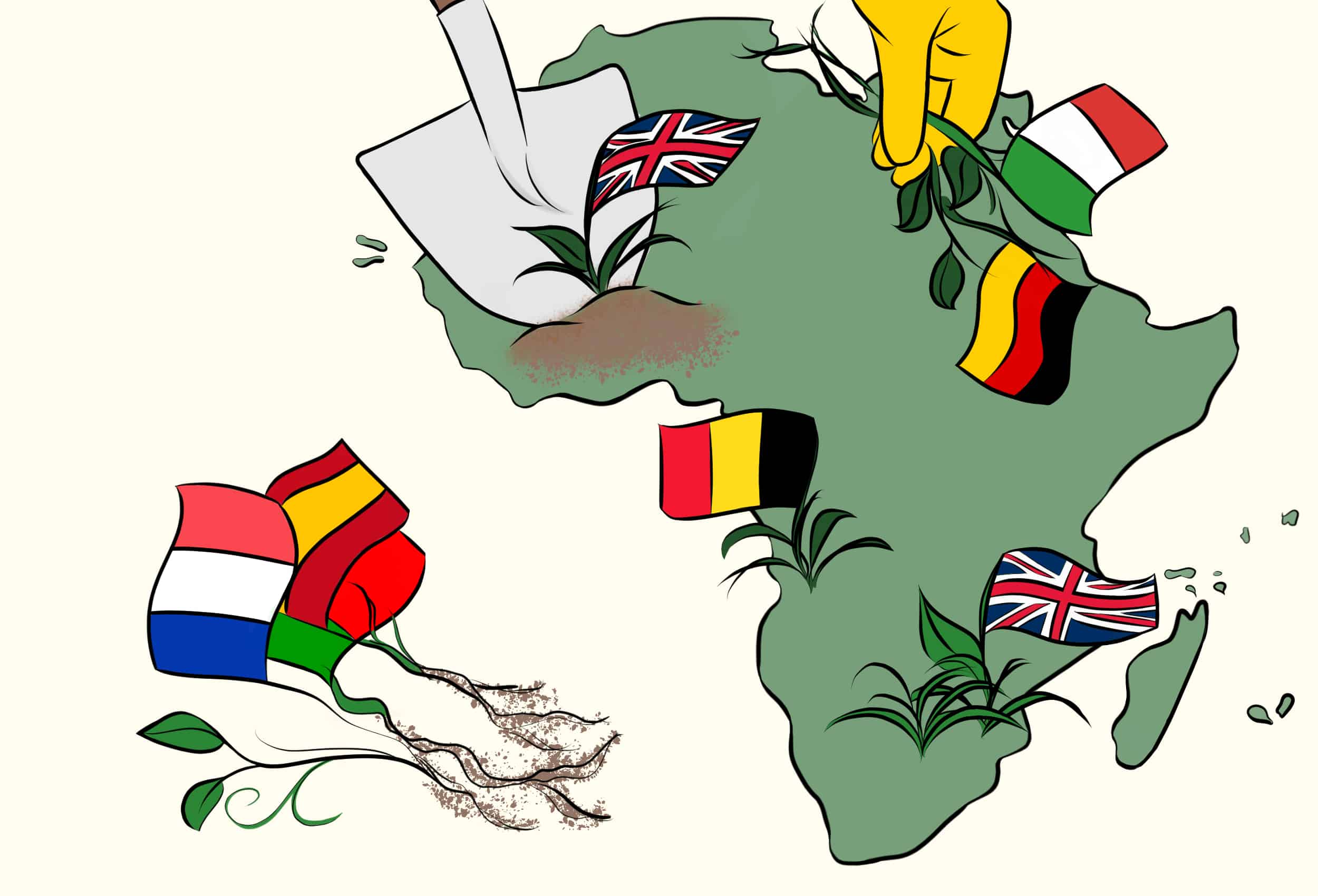“‘Ditch white philosophers,’ students tell London university,” reads a headline from UK news magazine The Week. The article, published earlier this year, was one of many released in response to the ‘Decolonising SOAS’ campaign hosted by the School of Oriental and African Studies (SOAS) students’ union at the University of London, which calls for a reshaping of SOAS curricula to include more thinkers from regions in Africa and Asia.
The scathing articles released in the aftermath of the campaign’s launch included testimony from several influential figures in European philosophy and academia accusing the students of attempting to ‘rewrite history.’
The articles were subsequently shared by those in academia and journalism, sparking the usual drivel about the importance, inherent relevance, and universalism of Europe and European thinkers — opinions which also imply irrelevance on the part of African and Asian thinkers.
Students involved in the campaign clarified that Decolonising SOAS was not an attempt to spurn European philosophers, but rather to shift toward a more conscious and critical teaching of them by diversifying curricula to better reflect the nature of the programs offered by SOAS.
The backlash to the SOAS students’ union’s statement is just one example of how Eurocentrism is deeply ingrained in academia; any attempt to question the relevance or importance of European thinkers is met with indignant resistance.
It is interesting that the request for teaching about more Asian and African thinkers was construed as a demand for the removal of white thinkers, as though the two are incapable of sharing academic space. Increasing the diversity of thinkers within curricula would only enhance learning and help the university get a little closer to the well-rounded education that it purports to provide.
Even in the teaching of these European philosophers, however, universities tend to be Eurocentric in the extreme. Professors often gloss over some of the more questionable beliefs of the thinkers being taught. The introductory Philosophy course I took at U of T, for example, was not only dominated entirely by European philosophers, but it also failed to mention that Aristotle was a firm defender of slavery and believed that some people were just born ‘natural slaves.’
This isn’t restricted to philosophy; from political science to English, professors often fail to thoroughly address the fact that the vast majority of the thinkers being discussed held problematic views of the world. To make matters worse, if these views are even presented, they often go unchallenged, dismissed as products of the thinker’s time. The Decolonising SOAS campaign, on the other hand, calls for a more critical discussion of these thinkers and their views as well as an in-depth examination of how these views affected and influenced their work.
Let’s consider for a moment the fact that alleged calls for the removal of European philosophers from the curricula of a school dedicated to African and Asian studies even caused this level of outrage. Would it really be so outrageous for students to ask to have European thinkers removed from their courses if they had no interest in learning them? There is, after all, no requirement at most universities — including at U of T — for philosophy students to take courses that discuss Asian and African thinkers.
Yet, there exists an insidious underlying assumption of the universality of European thought and its inherent relevance to all studies in academia — an assumption that is not only entirely false, but also perpetuates colonial legacies of European superiority and the consequent inferiority of other continents.
Sir Anthony Seldon, the Vice-Chancellor of Buckingham University, denounced the Decolonising SOAS campaign in a Telegraph article by claiming, “We need to understand the world as it was and not to rewrite history as some might like it to have been.”
But this is precisely what the SOAS students’ union is attempting to do: reveal the colonial legacies behind the philosophers they are taught, behind academia as a whole. Seldon’s comment is ignorant and speaks to the pervasiveness of the assumed relevance of European thought in academia. History has been whitewashed to the point where a Eurocentric education is widely accepted as the ‘correct’ one.
After all, Canadian universities feel it sufficient to teach extensively about British and French colonial history given their imperial enterprises on the continent, yet fail to properly educate students on Indigenous history or the ways in which colonial processes have extended to Indigenous lives to this day.
Furthermore, the initial misconstruing of the Decolonising SOAS campaign in various news articles cannot be dismissed as a coincidental stream of bad journalism. When a group of students band together to ask for more thinkers who are people of colour and for more critical teachings of white thinkers, they are immediately treated as threats to ‘true’ education, which speaks to larger, underlying efforts to resist change and maintain the status quo.
The erasure of the rest of the world’s contributions and the undervaluing of this work in an attempt to justify that erasure forms the basis of a very real attempt to rewrite history. The SOAS students’ union should be applauded rather than attacked for their efforts to decolonize their education, especially at an institution that claims to be “the world’s leading institution for the study of Asia, Africa, and the Middle East.”
In turn, universities in general, including U of T, should be making real efforts to move away from Eurocentric teachings. Students are wholly justified in demanding these kinds of changes.
Saambavi Mano is a third-year student at Victoria College studying Peace, Conflict, and Justice Studies. Her column appears every three weeks.


